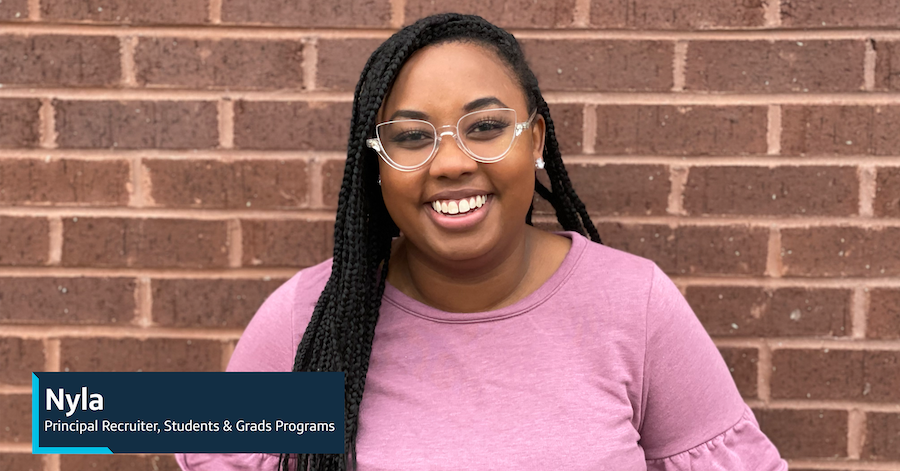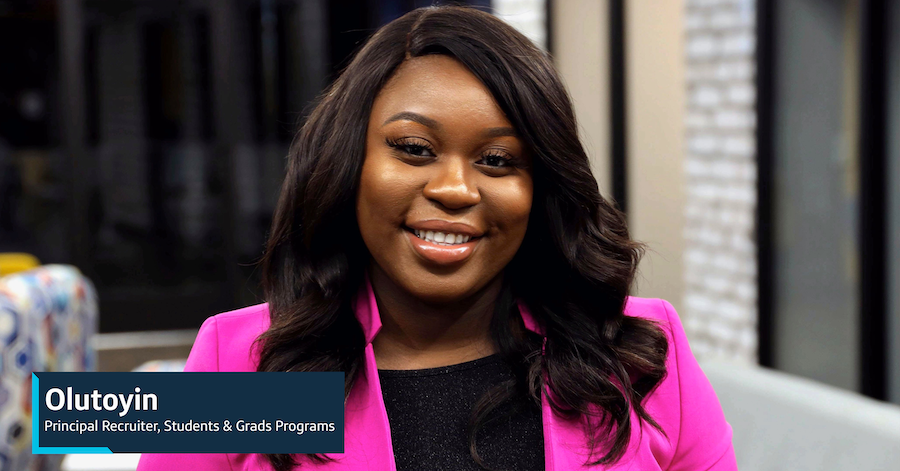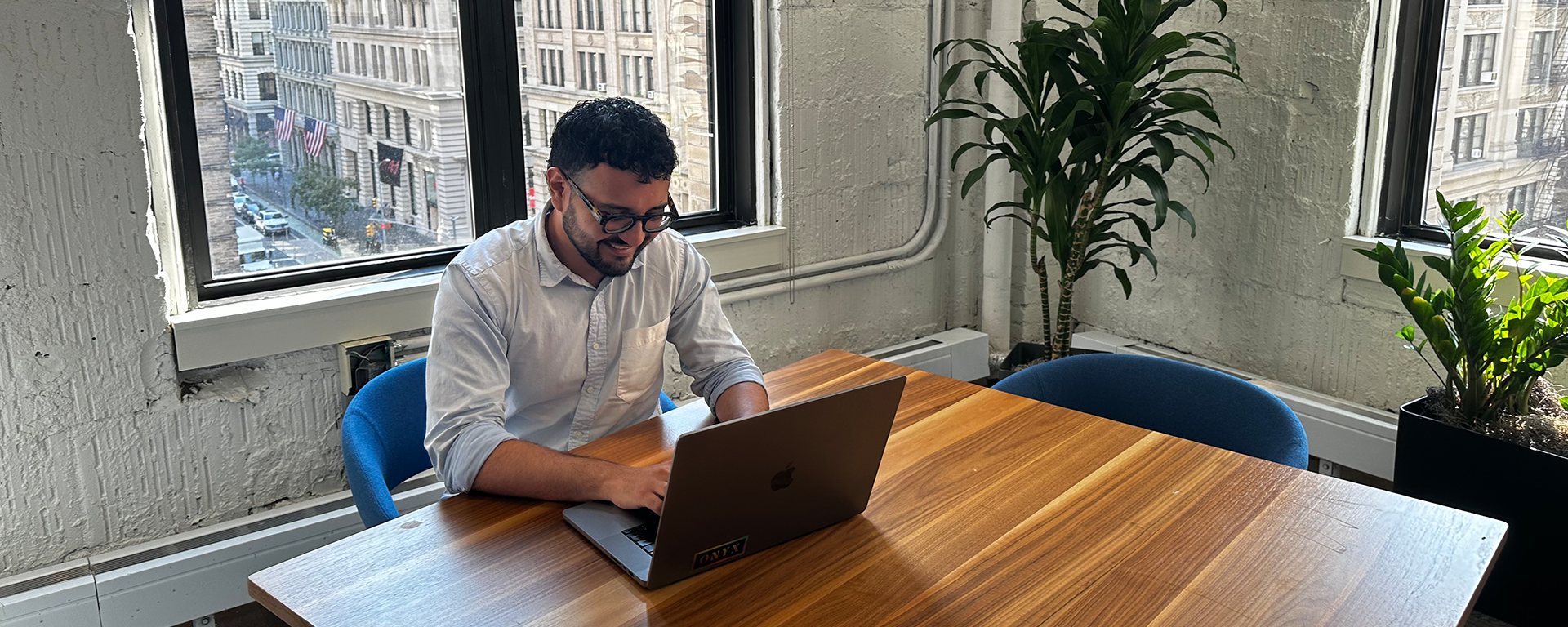How to gain job experience while still in school
There are countless ways to gain valuable career experience while still in school. From leadership positions in student organizations, to part-time jobs and volunteering, every student—no matter their interests—has a unique story and experience to share.
And that’s why Capital One recruiters are here to help students build out their resumes with useful experiences that fit where they are in life. Nyla and Olutoyin, two principal recruiters for our Students & Grads programs, shared their tips for finding early career opportunities and how to best market that experience during a job search.
“It doesn’t matter where you get your experience from,” Nyla said. “We want to see that you’re committed to a cause and know how to be part of a team, whether that’s from working in food services or interning with a Fortune 100 company.”

Make online connections
LinkedIn and Capital One’s event website for Students & Grads are powerful tools for applying to part-time jobs and internship opportunities, finding career development events and networking with hiring managers and recruiters.
Nyla recommends connecting directly with event speakers, recruiters and associates on LinkedIn. Don’t be afraid to reach out with questions or follow up with them if you were at an event they attended, as that’s exactly how Nyla found her job at Capital One. She met a Capital One leader at an event and later shadowed her twice during college. The leader recommended Nyla for the Commercial Banking Internship Program, which led to her role in the Commercial Banking Development Program, which she completed before switching to recruiting.
“If a student stays in touch with me, I’m more likely to remember them when an opportunity comes up,” Nyla said. “Even if they’re not the right fit for something I have right then, I can pass their name onto another recruiter.”
Tap into your school resources
From internship fairs to clubs and intramural teams, your school has plenty of opportunities you can leverage to pad your resume.
Olutoyin recommends starting with your university’s office of student life to learn more about clubs you can join and take active roles in, and what employers might be visiting campus. You can also search for programs that connect students with internship opportunities.
“We get that every student doesn’t have the same resources, connections or time to hunt for internships or jobs,” Olutoyin said. “Look for programs and people that help you get a foot in the door.”

Once you find an organization, stick with it. Olutoyin likes to see candidates who have put in valuable time with one or two clubs rather than overcommitting to multiple groups. For Olutoyin, that looked like spending three years in various executive positions with her student government.
“Finding those areas where you can serve in a leadership position means you’re doing more than just showing up to meetings,” Olutoyin said. “It shows that you’re dedicated, putting in work and growing, and that’s what recruiters love. We want to see leadership, leadership and more leadership.”
Learn how to brand part-time jobs
For Olutoyin and Nyla, a part-time job can be as valuable as any internship or leadership role—it’s all a matter of how you describe your experiences while working there.
Like with any position on a resume, go deeper than listing a job description. Share how you improved parts of the company you worked for, and make connections between the job you want and the job you have.
“Get fancy in showing what skills you’ve developed in your jobs,” Nyla said. “If you’re a cashier, tell us you’re a mathematician extraordinaire and share how you can solve problems quickly. Maybe you worked in retail and organized a sales event. That’s project management. Tell us a story that shows what skills you’ve gained and how you work.”
Ultimately, there are many paths to choose from to find the experience you need to build out your resume.
“I want students to remember college is a temporary time. There are a lot of things you have to prepare for,” Olutoyin said. “You’re never too early to start preparing for your future.”
Related Content
-

Supporting students from college to career
Learn about Dylan’s career journey from intern to senior software engineer at Capital One and how he’s supported others along the way.
-

What’s it like to intern at Capital One?
Learn how Capital One internships create opportunities for you to tackle meaningful work and gain the skills to have a successful career.
-

Get ahead with early career programs for students
Discover how Capital One's early student programs, internships and summits set up first and second-year college students for career success.
All Jobs
- Project Manager - Digital Banking Release Management R235039
- Sr. Manager, HR Business Partner - Cyber R233188
- Senior Penetration Tester R235077
- Senior Manager, Information Security Office (ISO) Consultant R229325
- Manager, Software Engineering, Full Stack R235064
- Senior Process Manager R235057
- Manager, Product Management R230778
- Senior Lead Software Engineer R232524
- Vice President, Capital Solutions R233506
- Principal Associate, Workplace Site Operations, Global Workplace Services R234966
- Principal Coordinator, Risk Management, US Card Partnerships R229865
- Lead Software Engineer, Full Stack R234979
Copyright © 2026 Opinions are those of the individual author. Statements are deemed accurate at the time of posting. Unless otherwise noted, Capital One is not affiliated with, or endorsed by, any company mentioned. All trademarks and intellectual property used or displayed are the property of their respective owners.

